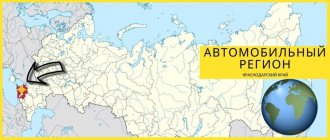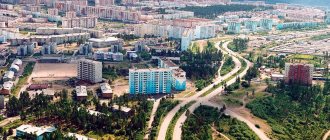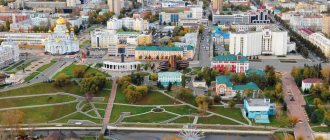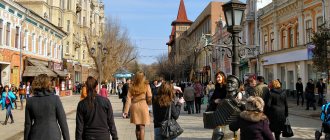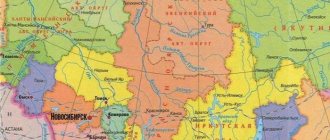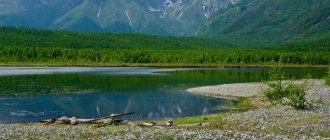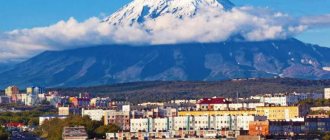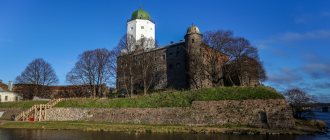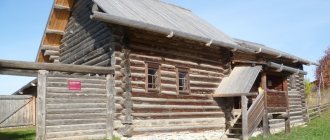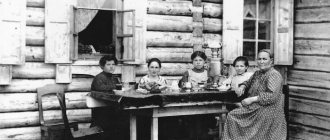What holiday is it today?
January 22, 2022, Saturday
Today are holidays, events: Day of Unification of Ukraine Tomorrow: Premiere of the opera “Eugene Onegin” at the Bolshoi Theater
Today is the Orthodox holiday: Martyr Polyeuctus. St. Philip, Metropolitan of Moscow and All Russia, wonderworker... Tomorrow: St. Gregory, Bishop of Nyssa. Venerable Markian the presbyter. Venerable Dometian, Bishop of Melitino. St. Paul of Komel, wonderworker, student of St. Sergius of Radonezh. Saint Theophan, the Recluse of Vyshensky...
Today is a national holiday: St. Philip's Day... Tomorrow: Gregory - Summer Guide...
Seasons
Seasons, four periods of the year (spring, summer, autumn and winter) characterized by certain average temperatures. The period during which the Sun passes through one of these sectors is called the season. Spring in the Northern Hemisphere and autumn in the Southern Hemisphere begin when the Sun passes through the initial circle of declination and its right ascension is 0° (vernal equinox). Summer in the Northern Hemisphere and winter in the Southern Hemisphere occur when the sun's right ascension is 90° (summer solstice). Autumn in the Northern Hemisphere and spring in the Southern Hemisphere begin when the sun's right ascension is 180° (autumnal equinox). The beginning of winter in the Northern Hemisphere and summer in the Southern Hemisphere is considered to be the winter solstice, when the direct ascension of the Sun is 270°... Next: Seasons. Russian folk calendar. Monthly words...
Geographical position
The Republic of Sakha (Yakutia) is located in the northeastern part of Siberia.
In the east it borders with the Chukotka Autonomous Okrug and the Magadan Region, in the southeast with the Khabarovsk Territory, in the south with the Amur Region and Transbaikal Territory, in the southwest with the Irkutsk Region, and in the west with the Krasnoyarsk Territory. The northern borders are washed by the waters of the Arctic Ocean: the Laptev and East Siberian seas, the length of the sea coastline exceeds 4.5 thousand kilometers.
More than 40% of the territory of Yakutia is located beyond the Arctic Circle.
Folk calendar about every day
Every day one season always replaces another and this determines a person’s way of life. In connection with this, a folk calendar was formed in which there were practically no nameless, unmarked days. Every day was special, had its own purpose. All this was determined by climate conditions and astrological phenomena.
A calendar is a system for counting periods of time. The first calendars arose a long time ago, in ancient times, because there was a need to measure time. The word calendar comes from the Latin words caleo - to proclaim and calendarium - debt book. This is due to the fact that in Ancient Rome the beginning of each month was especially proclaimed, and because it was customary to pay debts on the first day of the month. Different peoples counted time differently. Some calendars are based on the changing phases of the moon - lunar calendars; in others - the change of seasons - sunny; in others, the length of the year was coordinated with the change of seasons, and the counting of months was associated with the phases of the Moon. Such calendars are called lunisolar.
In Rus', the calendar was called a monthly calendar. Every day, the month book covered the entire year of peasant life, “describing” day by day, month after month, where each day had its own holidays or weekdays, customs and superstitions, traditions and rituals, natural signs and phenomena. The cyclical nature of the calendar is reminiscent of human life, where spring is youth, summer is heyday, autumn is the time of harvesting fruits (it’s good if there are some, otherwise you can live your life without collecting fruits), winter is the time of wisdom and peace. This cyclicality and rhythm determined the way of life of the farmer. The folk calendar was an agricultural calendar, which was reflected in the names of the months, folk signs, rituals and customs. Even the determination of the timing and duration of the seasons is associated with real climatic conditions. Hence the discrepancy between the names of the months in different areas... Next: Folk calendar...
Sports objects
In Yakutsk there is a large and excellently equipped ice palace, which is called “Elley Bootur”. There are also several stadiums with artificial turf. Among them are “Tuymaada” and “Youth”. Sports sections for children and adults operate in the sports palace “50 Years of Victory”, as well as at the sports complexes “Triumph”, “Sterkh”, “Dolgun”, “Nugget”, “Tandem”, “Modun” and “Cholbon”.
Fishing calendar for every day
The fishing calendar should not be taken as an absolutely indisputable truth. Fish biting is greatly influenced by a whole range of natural factors, as well as the influence on the nature of man himself. You must not forget that the fish’s bite depends and is determined not only by the calendar dates and biological cycles of their life, reflected in the calendar, but also, no less, by the state of their habitat; the bite also depends on weather conditions: air and water temperatures, cloudiness, wind direction and strength, etc... Next: Fishing calendar...
Orthodox calendar about every day
Orthodox calendar: Orthodox, Church and Christian holidays.
The church year is an alternation of weekdays and holidays. On weekdays, a person is called to work “by the sweat of his brow to earn his bread.” Holidays are given in order to feel liberation, to rise above the bustle and routine of the world, to feel involved in the highest of worlds, “where there are no illnesses, sorrows and sighs, but endless life.” Since ancient times, holiday cycles have been associated with the seasons. The pagans associated them with the worship of the forces of nature, the cult of which in the Old Testament was replaced by gratitude to the Creator for the universe. And although the connection between holidays and the seasons has not completely lost its power, since God is present in everything, in the plant and animal world, in human works, it nevertheless faded into the background, giving way to a spiritual foundation built on the Sacred Scriptures. The history of Orthodox holidays dates back to the times of the Old Testament. Each of the Orthodox holidays is dedicated to the remembrance of the most important events in the life of Jesus Christ and the Mother of God, as well as the memory of saints... Next: Orthodox calendar...
Monuments
The capital of Yakutia, Sakha, whose photos will decorate your travel album, will also be of interest to lovers of monuments and sculptural compositions. In particular, there you can see a unique statue of a mammoth, which was installed in the courtyard of the Institute of Permafrost Science, on the site where the well-preserved corpse of this animal was found. Another image of a prehistoric relative of modern elephants is located next to the new building of the Yakut circus. Moreover, on the back of the mammoth there are two gilded acrobats. In addition, in the capital of the republic you can see a monument to friendship, depicting the first family created by a Russian and a Yakut woman, and their mixed-breed baby. Like all citizens of the former USSR, residents of Yakutia took part in the defense of their great Motherland during the Second World War. In memory of those who never returned from the battlefield, the Victory Stele was erected.
Russian folk calendar for every day
The word “sign” comes from the word “notice”, i.e. observe. As a result of observing what happens around a person every day, he accumulates life experience. This knowledge was passed down from generation to generation, carefully preserved and people trusted it as a sacred book. Many signs have come to us from the depths of centuries without losing their knowledge. Each of us is free to choose: to dismiss all this as an absurd superstition or to take a closer look at the signs and take the centuries-old experience of generations more seriously. Most of us, when taking exams, ask them to scold them, boasting about some kind of good fortune or luck, spit so as not to jinx them or knock on wood, take a detour if a black cat crossed the road, are afraid of the number 13 and much more. And who among us does not have lucky things, numbers? Who has never resorted to the help of fate at least once in their life, who has not believed in secrets? It’s as if everything connected with signs is hidden somewhere deep in our subconscious. Often we remember them mechanically, unconsciously, or just as a joke. But, undoubtedly, the signs contain a lot of accurate knowledge and practical wisdom of our ancestors. They cover all the characteristic, often difficult to perceive, natural phenomena. Signs have preserved a lot of what was in old folk holidays and customs; they help predict the weather, grow crops... Next: Folk signs...
Architectural sights of Yakutsk
As already mentioned, the capital of Yakutia was founded more than 370 years ago, so you can see many different historical and cultural monuments there. In particular, in the Old Town area you can see many ancient buildings and their modern reconstructions, giving an idea of what Yakutsk looked like 100-200 years ago. In general, it is considered the best place for walking excursions; even the sidewalks and roadways are paved with chocks. Therefore, tourists remember the capital of Yakutia as a place where they walked along “wooden” streets.
Holiday calendar, dates and events of the year
All state and professional holidays in Russia, including significant World and International holidays, and other equally interesting holidays and events about every day.
The holiday has always kept pace with the history of mankind. Social time can be divided into three types: everyday life (weekdays), weekends and holidays. Everyday life is a series of practices repeated day after day and every day (work). Weekends are regular breaks from the rush of everyday life. It is believed that on weekends a person should restore his strength after working days. Day off, non-working day. A holiday is a day of celebration established in honor or in memory of someone or something. A day or series of days celebrated by the church in memory of a religious event or saint... Next: Calendar...
Prayer book, Orthodox prayers for every day
Prayer is the most powerful means for healing all illnesses - both physical and mental. Prayers can be laudatory or grateful, petitionary and repentant. If we have offended God, sinned, we must ask Him for forgiveness, that is, repent. Such prayers are called repentant prayers. If everything is fine with us, if we and our loved ones are healthy and prosperous, if we have a place to live, something to wear, something to eat, we must glorify and thank God for this. Such prayers are called praise or thanksgiving. If some misfortune, illness, trouble or need happens, you need to ask God for help. Such prayers are called petitionary... Next: Orthodox prayers...
Zodiac, astrological, eastern calendar. Zodiac signs
In ancient times, to establish the calendar, priests used knowledge of the positions of all the planets. Before the reform of Peter 1, the New Year was celebrated on the Day of the Autumn Equinox. On this day, according to ancient legend, the most peaceful treaty was concluded between the Great Race (ancient Slavs) and the Great Dragon (ancient Chinese) and it was approximately 7518 years ago... For the ancient Slavs, the calendar month corresponded to the lunar cycle from new moon to new moon, taking into account such Thus, the relationship of the entire annual cycle with astronomical and natural phenomena. There was no coherent calendar system. The main natural phenomena are still considered to this day to be the days of the solar equinox and solstice - the Slavic holidays Maslenitsa, Kupala, Ovsen and Kolyada. But during the time of Peter 1, all ancient Slavic calendars were abolished and a new Western European calendar from the Nativity of Christ (Julian calendar) was introduced, while the beginning of the calendar was moved to January 1. The Julian calendar (old style) did not take leap days into account and accumulated one extra day every 128 years. After the October Revolution in 1918, the Gregorian calendar (new style) was introduced in Russia, according to which an amendment of 13 days was introduced. The calendar of the ancient Slavs was based on two planets: the Sun and the Moon. And now they don’t use anything at all. The calendar has become static. There is no such thing as the calendar, it turns out, resting on some planet. Nobody even knows about it. There are just some standard numbers, there are months and holidays. The calendar is based on the Sun and Moon. Why is this so? Because these two luminaries influence the Earth. The Earth revolves around the Sun, and the Moon revolves around the Earth. And these two luminaries create the atmosphere on the planet. From here the calendar is built... Next: Astrological calendar...
Cities of Yakutia
Yakutsk (286 thousand people) is the capital of the Sakha Republic. Founded by the Cossacks in 1632 as the Lensky (Yakut) fort. Since then, it has become the center of the Yakut Cossacks and the main Russian base in northeastern Siberia.
Today Yakutsk is the third largest city in the Far Eastern Federal District. People from all the villages of the vast Yakutia come here in search of civilization, and local residents, primarily Russian speakers, strive to leave this city and move to the capital or somewhere near it. Despite good infrastructure, the presence of working enterprises, primarily the fuel and energy complex, and a lot of money, Yakutsk remained a lost city in the Siberian wilderness.
One of the office buildings in Yakutsk
Neryungri (60 thousand people) is the second largest city in Yakutia. Located in the very south of the republic. It was founded relatively recently - in 1975. But back in the 17th century, the first gold mines were discovered here. Now very valuable and rare coking coal is mined here, mainly for export.
Mirny (35 thousand people) is the diamond capital of Russia. Founded in 1955 next to the Mir kimberlite pipe discovered here. Diamonds are mined here by open-pit mining, and the diamond quarry, which goes 1,200 meters deep, is one of the largest in the world. This is where the diamond industry is located, which has invested a lot in the infrastructure of this city.
Dream books online, interpretation of dreams
A dream book is nothing more than an interpreter of dreams and dreams, a translator of dreams. Since ancient times, people have been using dream books; dreams have always been given great importance, and people have often noticed the prophetic properties of some dreams. The dream book can become your faithful assistant every day and throughout your life, thanks to the dream interpreter you can always make the right decisions, the dream book will help you resist temptations in time, and will warn you against wrong steps and frivolous actions. Further…
